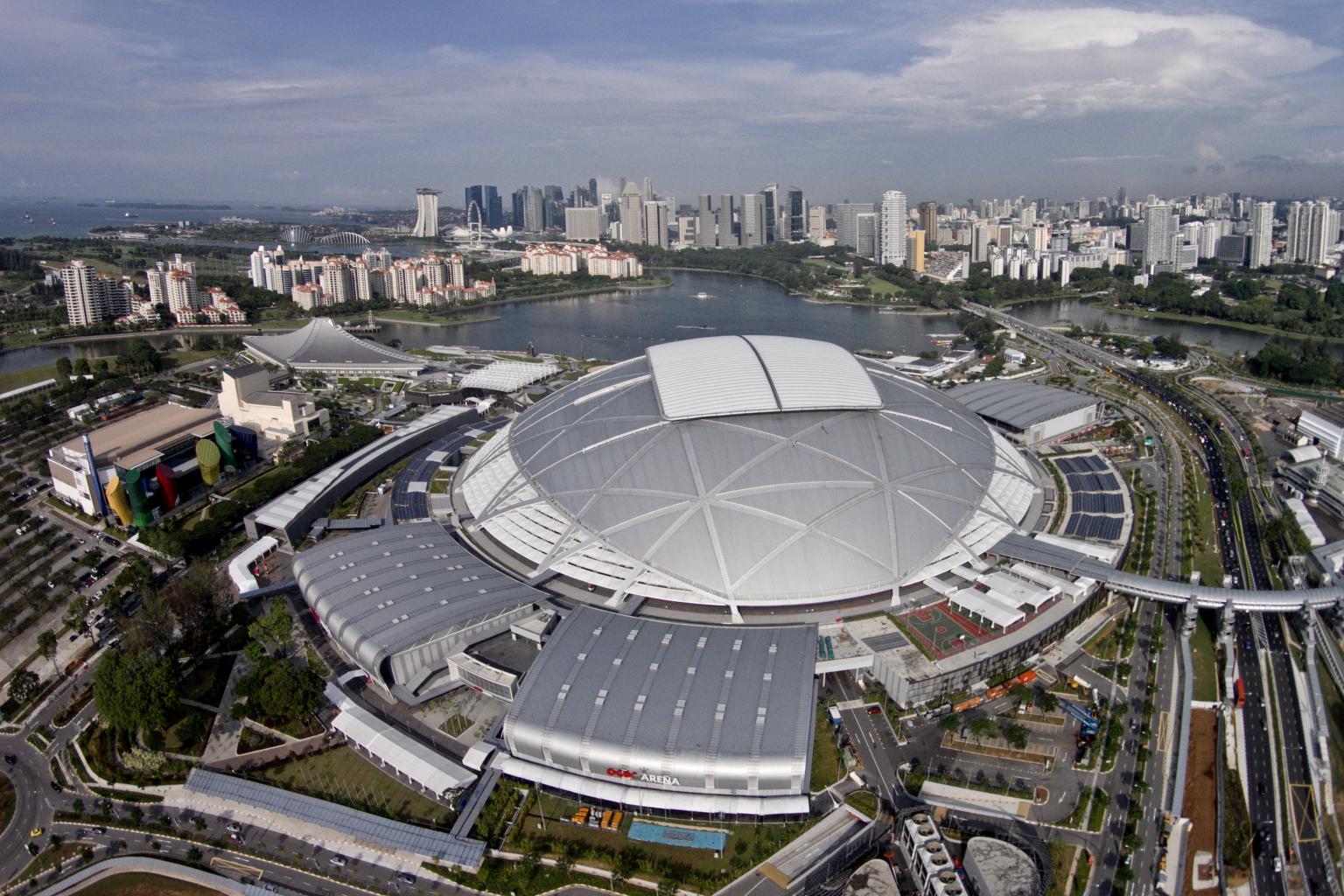Public-private tie-up was right for Sports Hub when project was conceived, says SportSG
Sign up now: Get ST's newsletters delivered to your inbox

The tie-up allowed the Government to tap the expertise of the private sector in building and managing the Sports Hub.
PHOTO: ST FILE
Follow topic:
SINGAPORE - The Government's move to take back ownership and management of the Sports Hub should not be seen as a failure of the public-private partnership (PPP) project, and is something that was provided for under the agreement, said Sport Singapore (SportSG) chief executive officer Lim Teck Yin on Friday (June 10).
When the Sports Hub was conceived in 2008, the PPP was the right vehicle for the project as it allowed the Government to tap the expertise of the private sector, which the Government lacked, in building and managing such a large sporting facility, he added.
Mr Lim's defence of the PPP came as he announced SportSG's decision to terminate its partnership with SportsHub Pte Ltd (SHPL), ending a tie-up that had called into question the value of such partnerships. The Government will take over the Sports Hub on Dec 9.
He said at a press conference that the plan is to make the Sports Hub more accessible to the broader community in Singapore, while still maintaining commercial sustainability, and direct management will give SportSG greater control and flexibility.
The $1.33 billion Sports Hub had been beset with problems from the get-go, with its completion date pushed back repeatedly owing to delays in securing funding from financial institutions.
Under the PPP agreement between the Government and SHPL, the Government was to have made annual payments of $193.7 million to the consortium for 25 years from 2010 to 2035.
Though the Sports Hub was supposed to be completed in 2010, it opened its doors only in 2014.
Over the years, it ran into more problems, including upheaval in its management team and the departure of three CEOs, as well as a leaking roof and pitch problems.
In 2020, the Ministry of Culture, Community and Youth said financial penalties had been imposed on Sports Hub for not meeting standards and performance requirements.
The Hub's woes had sparked criticism of the PPP, a procurement method in which the Government and the private sector collaborate on projects that often include building infrastructure through long-term concession agreements.
On Friday, Mr Lim, as well as SportSG chairman Kon Yin Tong, stressed that termination of the PPP was "a mutually agreed decision" and "an amicable one" with no penalties, adding that the PPP had not failed.
They also said the terms of the PPP agreement had allowed for SportSG to decide "if and when the project should be terminated", and this suggests that there was always a consideration for how things might evolve over the long period of the contract.
Emphasising that the agreement had been "fit for purpose" at the time the project was conceived, Mr Lim said it had allowed the Government to benefit from private sector financing.
Mr Kon added that it had freed up fiscal resources for other uses, and reduced financial risks to the Government, at a time when the world had been hit by the financial crisis in 2008.
The PPP also meant the Government could benefit from private sector expertise in such a project, he said.
"We wanted to jump-start... to hit the ground running, and the PPP was the best way forward, all things considered," he added.
On whether the Government would have to end up spending more money now than if it had taken on the project on its own at the start, Mr Lim said that once the PPP was agreed upon, fiscal resources had been set aside for the yearly payments.
"So now, obviously, it's a question of how to best deploy that resource to maximum benefit within the light of the existing context that we see going forward," he added.
As for the implications of this on other such tie-ups, Mr Lim said many other PPPs exist in Singapore and are "running smoothly and... doing fine".
Asked why the plan to make the Sports Hub a "community icon for all to enjoy" and to develop the larger Kallang Alive precinct could not be achieved under the current agreement, Mr Lim cited "contractual limitations" that "make it difficult for us to be able to consider how to build further synergy if we would like to be able to do so both commercially as well as for operations".
He added: "So while at the time the decision was made, the considerations were valid and sound. I think the context has evolved and to try to explain that and therefore, it is the right time to do this, particularly when we're on the cusp of many of these facilities being completed by the end of this year and next year.
"There are strong social outcomes that we want to achieve with our Sports Hub and with Kallang Alive. And in that context, we think there's greater autonomy, control, flexibility to be able to do this within a different arrangement."

